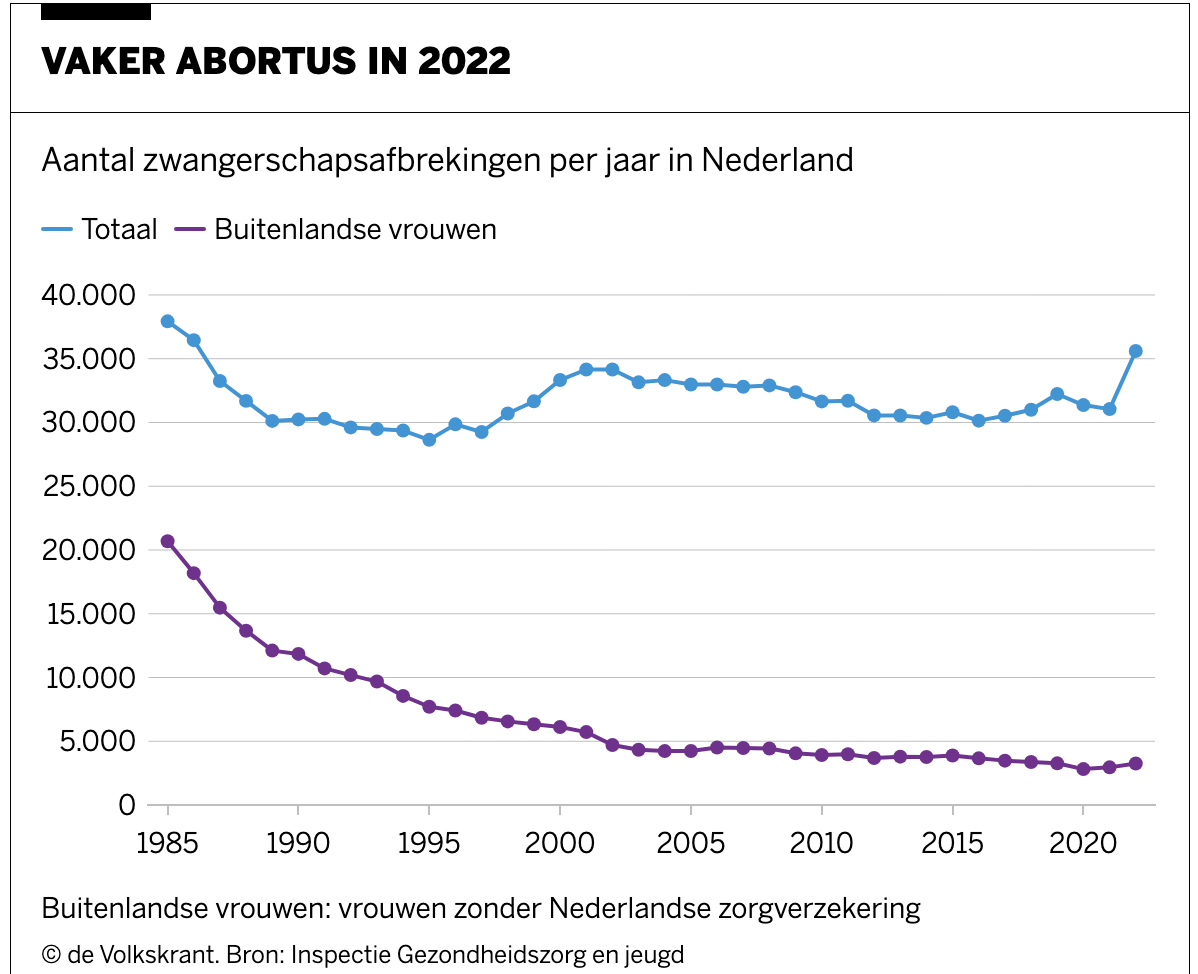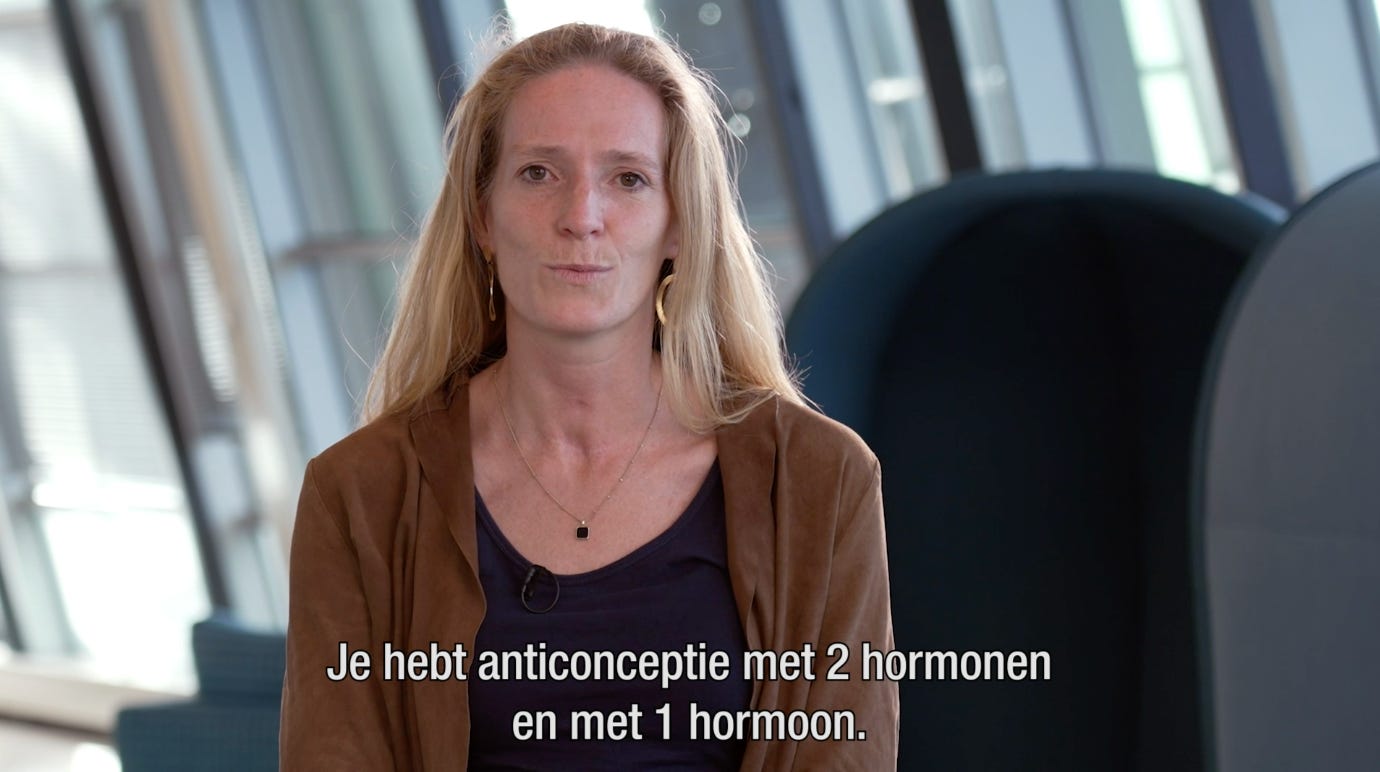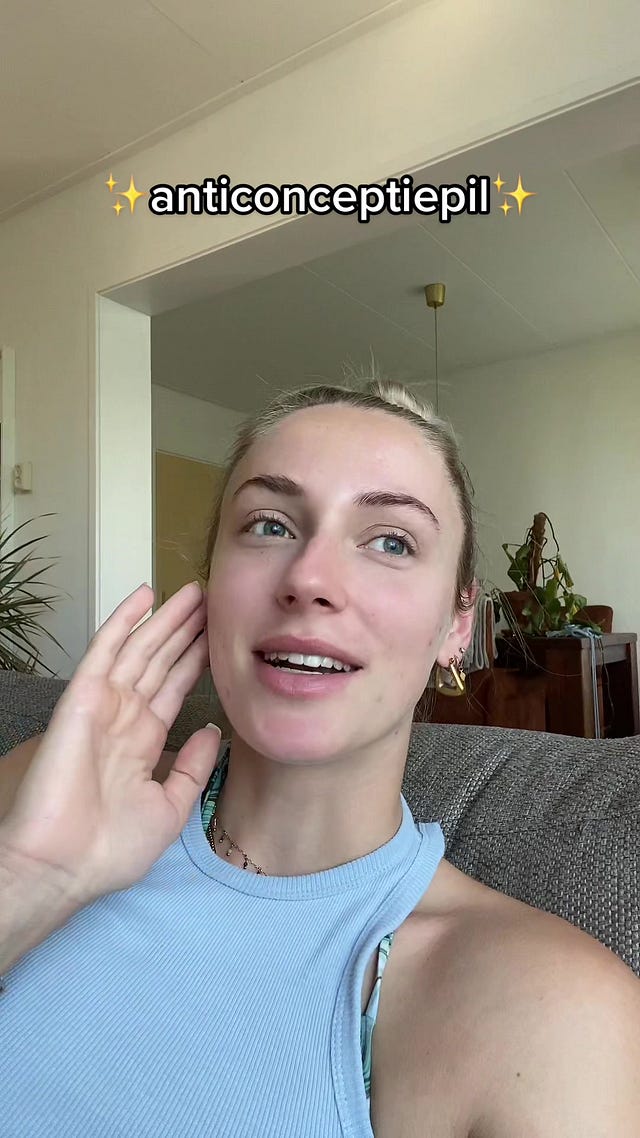The highest abortion rate in 36 years. Blame Tiktok.
Things have changed since 1881 in Amsterdam

Last week government data showed that in 2022 the abortion rate increased by 14.7 percent over 2021.
I wasn’t surprised. Doctors have been issuing warnings over the last few years about social media disinformation increasing mistrust in contraception among young Dutch women.
A spike in the abortion rate was bound to happen.
What is surprising: Amsterdam opened the first birth control clinic in the world in 1881. How times have changed!
Warnings from doctors
In September, the Medicines Evaluation Board (CBG), the Dutch medicine watchdog, warned against contraceptive misinformation on social media.
In July, the Dutch Society of Abortion Doctors (NGVA), warned that women between 18 - 28 are increasingly using apps and thermometers, rather than much more reliable hormonal contraception or condoms.
In 2018, Dutch gynecologists warned that there’s no scientific evidence proving that measuring your temperature every morning is a reliable contraceptive method.
In 2014, 38 percent of 16 to 49 year olds were still on the pill.
Now it’s only 29 percent.
TikTok-induced “hormone phobia”
The caption in the video below says: “Officially one year off of hormonal contraceptive and I have never felt so good in my entire life. Physically and spiritually. Best choice e-ver.”
While Dutch doctors are quick to point out that there isn’t one clear cause for the spike in abortion rates, they reference TikTok and Instagram as one of the main culprits.
I wrote about the similar effect of influencers are having on the nutritional supplement market in the Netherlands a few weeks ago. The NOS explains what’s going on with contraception:
On TikTok, young people searching hashtags such as natural contraception , hormonal contraception and neutral contraception are quickly inundated with messages from women explaining why you should stop taking the pill sooner rather than later. A “hormone phobia,” the NVGA calls it. Rutgers sees similarities with the long-standing trend of living as naturally as possible: “Without artificial substances in food and the like.”
These posts, from filtered, beautiful young women, make going off contraceptives seem like the healthiest thing in the world. Some of them even refer to hormonal contraception as “toxic.”
How it started / How it’s going
Odd that things would be going this way now when the first birth control clinic in the world opened in Amsterdam in 1881. Its operators, the Neo-Malthusian League, were primarily concerned with poverty reduction.
By spreading information on contraceptive methods, working-class families in particular would be taught to reduce the size of their families and thus enhance their standard of living. For poor women consultation hours for free sexual advice and contraceptives were organized.
Margaret Sanger, the American activist and founder of what later became Planned Parenthood, visited these clinics in the Netherlands in 1915 and wrote of her experience:
… the fact remains that even the best educated women have very limited knowledge of the construction of their generative organs or their physiology. What, then, can be expected of the less educated women, who have had less advantages and opportunities?
It is consequently most desirable that there be practical teaching of the methods to be recommended, and women taught the physiology of their sex organs by those equipped with the knowledge and capable of teaching it.
Which is funny, because the same issue is playing out today. Women—then and now and always—need to be educated to understand contraception. It’s where they turn for this information, and who they have started to trust, that has become the problem.
In September, the CGB launched a campaign with the message: “Be well informed and don't believe everything you see on social media such as TikTok or Instagram about contraception.” A doctor dryly explains hormones etc in the video above.
Doctors encourage women to ask their doctors, not influencers, for contraceptive advice. And that there are so many different options for contraception, it may be a matter of trial and error to find the right one for you.
But doctors are a lot less compelling than relatable young women on social media talking about their personal experiences and how much healthier they feel without using contraception.
 Tiktok failed to load.
Tiktok failed to load.Enable 3rd party cookies or use another browser
The Dutch idea of health
I wrote a few weeks ago about how Dutch and American conceptions of health differ. In the US (where I’m from) taking medicine is considered healthy. There are pills for everything! Dutch people, on the other hand, generally prefer to take as few pills as possible.
I think TikTok-driven “hormone-phobia” is a natural extension of this attitude. Where there’s a cultural disinclination here to take medicine, maybe a turn against contraception was inevitable.
I wonder if the only way to combat this spike in abortions is for young female doctors to launch their own TikTok campaign. The CBD’s boring video above is bit like bringing a knife to a gunfight… as we say in America.
🥳 Leuke Dingetjes

A new single from Lavern
Maybe it’s just that it’s ADE this week, but I’m into this new dance track.
*all typos in this post are deliberate









Terrifying to see anti-science taking up even more space post-covid. It's the leftie/wellness version of conspiracy theories